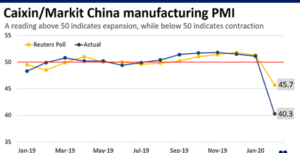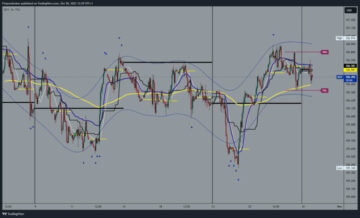Germany’s Schwedt oil refinery reported low earnings, highlighting the difficulties the country faces. Berlin refused to use Russian oil, instead making plans to find alternative suppliers. Poland partnered with Germany in this quest. However, thus far, they have been struggling the meet the demand.
Schwedt has traditionally supplied 90% of the gasoline, fuel oil, diesel, and jet fuel used in Berlin. But the refinery is running at 50-60% of capacity after three months since the German government and Warsaw agreed to work together. Meanwhile, those alternative supplies still haven’t appeared.
Last month, Russia retaliated against the two European countries’ bilateral efforts. Moscow halted oil flows to Poland, stopping its delivery via the Druzhba pipeline. As a result, Poland now can’t free up a sufficient amount of oil for Schwedt. Moreover, PKN Orlen, a Polish state-controlled refiner, has to use more capacity at the Gdansk oil terminal. In another case, it won’t be able to feed its own Plock refinery.
Consequently, Schwedt can only have one tanker slot in Gdansk per month. That is approximately 1 million metric tons of oil per year. Unfortunately, that amounts to just a third of the volume that the countries need.
Germany sanctioned using Russian oil due to the Ukraine war
Berlin stopped buying Russian commodities in January. This decision was part of its sanctions against Russia after the latter invaded Ukraine. Schwedt refinery formerly accounted for 233,000 barrels per day. But since January, it has been running at about 55% capacity, producing about 130,000 barrels per day. It also relied heavily on pipeline supplies from the port of Rostock. The latter is in northern Germany.
Sources in Germany and Poland noted that supplies via Poland have only yielded two tankers thus far. Two countries started discussing shipping non-Russian oil to Schwedt via Polish pipelines (the port of Gdansk and Druzhba) in the early spring of last year.
- SEO Powered Content & PR Distribution. Get Amplified Today.
- Platoblockchain. Web3 Metaverse Intelligence. Knowledge Amplified. Access Here.
- Source: https://www.financebrokerage.com/germanys-schwedt-struggles-to-compete-with-russian-oil/
- :is
- $UP
- 000
- 1
- a
- Able
- About
- After
- against
- alternative
- amount
- amounts
- and
- Another
- appeared
- approximately
- ARE
- AS
- At
- barrels
- BE
- berlin
- boj
- Buying
- CAN
- Capacity
- case
- China
- Chinas
- Commodities
- compete
- countries
- country
- day
- decision
- delivery
- Demand
- diesel
- difficulties
- discussing
- Druzhba pipeline
- each
- Early
- Earnings
- efforts
- European
- faces
- far
- Feb
- Find
- For
- formerly
- Free
- from
- Fuel
- gasoline
- German
- German government
- Germany
- Government
- Governor
- Have
- heavily
- highlighting
- Hit
- However
- HTTPS
- in
- instead
- IT
- ITS
- January
- Japan’s
- jpg
- Last
- Last Year
- Low
- Lows
- Making
- manufacturing
- Meanwhile
- Meet
- metric
- million
- Month
- months
- more
- Moreover
- Moscow
- Need
- New
- news
- noted
- of
- Oil
- on
- ONE
- Other
- own
- part
- partnered
- pipeline
- plans
- plato
- Plato Data Intelligence
- PlatoData
- Poland
- Polish
- quest
- record
- Reported
- responsive
- result
- running
- Russia
- russian
- Russian oil
- s
- Sanctioned
- Sanctions
- Shipping
- since
- slot
- Soon
- spring
- started
- Still
- stopped
- stopping
- Struggles
- Struggling
- sufficient
- SUMMARY
- supplied
- suppliers
- Terminal
- that
- The
- Third
- three
- to
- together
- tons
- traditionally
- true
- u.s.
- Ukraine
- use
- via
- Video
- volume
- Warsaw
- weekly
- will
- with
- Work
- work together
- year
- youtube
- zephyrnet















